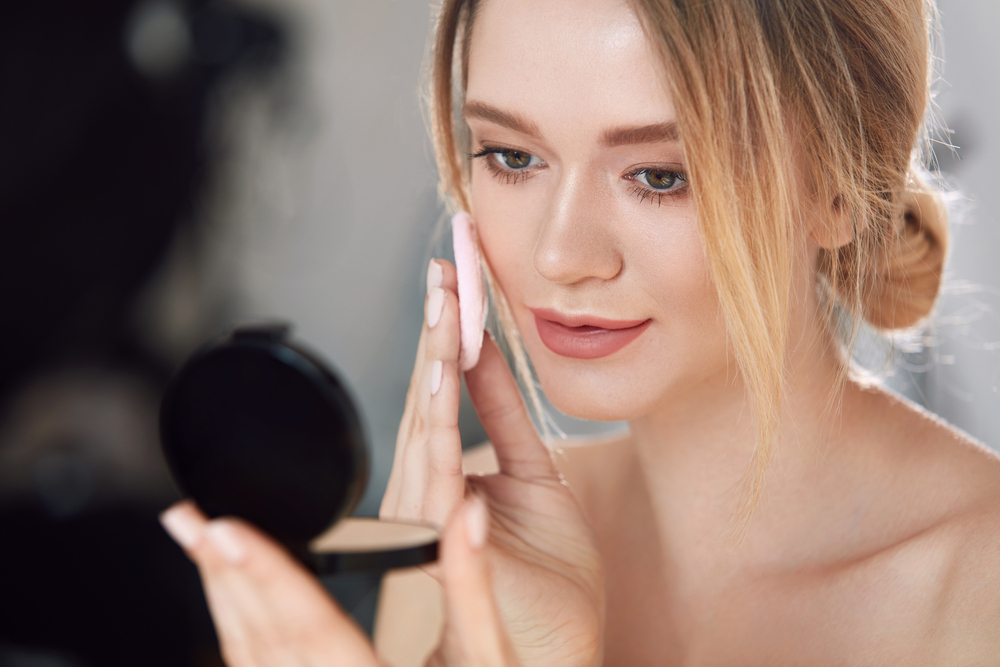Understanding your skin type is an essential step towards creating beautiful, healthy skin. determine your skin type is a lot more than just a cosmetic issue; it’s like having your guide throughout the complicated field of skincare. This knowledge forms the basis of a unique and effective skincare routine that attends to the specific needs and difficulties of your skin. We’ll explore the importance of understanding your skin type and the secrets that reside beneath the surface in this exploration.
This journey is an important first step towards. learning the key to glowing skin is embracing oneself in the skin type that you are in, whether you have sensitive skin or normal, oily, dry, or combination skin. Now, let’s get out on this informative journey to learn the basics of appreciating and respecting your own skin identity.
The Importance of Understanding Determine Your Skin Type
Knowing your skin type is essential to using skincare products that work. Different kinds call for different care routines. While dry skin benefits from moisture, oily skin needs products without oil. Combination skin requires a thoughtful method. Softly allergenic products are necessary for sensitive skin. By preventing problems and encouraging a more healthy skin tone, knowing your type allows for centered solutions.
Discuss How Skin Type Affects Skincare Routine
Understanding the important effect of your skin type on your beauty routine is the first step towards obtaining glowing skin. We’ll explore how selecting products and routines are affected by your skin type—oily, dry, combination, or sensitive. This knowledge ensures a unique method, maximizing the benefits of your routine and opening the door to glowing healthy-looking skin.
Highlight the Role of Skin Type in Choosing the Right Products
The guide that points you in the right direction of the right skin care products is your skin type. We’ll stress how important it is to understand if your skin is oily, dry, or sensitive. With this knowledge, you can select products with specific ingredients, keeping your skincare routine beneficial, effective, and suitable for your skin type.
Determine your skin type with ease how in identifying whether you have oily, dry, combination, or sensitive skin.
Common Skin Types
Normal Skin Type
Normal skin is a balanced canvas—neither excessively oily nor dry. With optimal moisture levels, it is resilient and less prone to issues. A straightforward routine helps maintain its harmony, making it the benchmark for healthy skin.
Oily Skin Type
Oily skin produces excess sebum, leading to a shiny complexion and potential acne concerns. Managing oil production through targeted skincare helps maintain a balanced and clear complexion.
Dry Skin Type
Dry skin types are generally tight, difficult, or dry because they lose natural moisture. Hydrating products help keep healthy skin and repair moisture.
Type of Sensitive Skin
Sensitive skin is quickly irritated and reacts to different products. To reduce pain and redness, it calls for careful care, avoiding harsh chemicals, and adopting soothing, allergic products.
Combination Skin Type
Combination skin features both oily and dry areas, requiring a nuanced approach. Balancing oil production in the T-zone while providing ample hydration for drier regions ensures comprehensive care for diverse skin needs.
Characteristics of Each Skin Type
Nor Normal skin is not excessively oily not dry; rather, it has a balanced moisture level. Excess oil production from oily skin can lead to shine or even pimples. Dry skin is tight, empty of moisture, and frequently flaky. Combination skin has parts that are both dry and oily, therefore careful handling is needed. Sensitive skin is quickly irritated, reacts to different products, and needs to be treated gently to avoid pain. mal skin maintains a well-balanced moisture level, free from excessive dryness or oiliness.
Oily skin tends to produce excess sebum, resulting in shine and potential acne. Dry skin feels tight, lacks moisture, often prone to flakiness. Combination skin displays both oily and dry areas, requiring a nuanced approach. Sensitive skin is easily irritated, reacting to various products, and demanding gentle care to avoid discomfort. Understanding these characteristics guides effective skincare routines.
Signs and Symptoms of Different Skin Types
How to Identify Your Skin Type
Determine your skin type involves keen observation of its unique characteristics. For normal skin, it feels balanced. Sensitive skin reacts easily, combination skin shows both characteristics, oily skin shines in excess, and dry skin feels tight. Considering factors like sensitivity, shine, and texture gives you a thorough insight and helps you select the best skincare routine for optimum results.
At-Home Skin Type Test
Step-by-Step Simple at-Home Skin-Type Test
Ensures that your face is completely clear of any makeup or pollution before starting your at-home skin type test.
After patting your skin dry, observe how it feels. If it’s comfortable without excessive oiliness or dryness, you likely have normal skin. If shiny, you may have oily skin, while tightness may indicate dry skin. Combining these observations with any sensitivity or specific concerns will help you determine your skin type.
Include Tips on What to Look for During the Test
After cleansing, observe any extra shine, tightness, or pain during the at-home skin type test. Keep an eye out for any dry areas, redness, or inflammation while observing the general feel and tone of your skin. By combining these insights with any particular problems you may precisely determine your skin type and create a more personalized skincare routine.
Consulting with a Dermatologist
Discuss When it’s Necessary to Seek a Dermatologist’s Guidance
Seeking a dermatologist’s guidance becomes imperative when your skin concerns persist or escalate. In this exploration, we’ll discuss the pivotal moments when professional intervention is essential for accurate diagnosis and effective treatment. From persistent acne to mysterious rashes, understanding when to consult a dermatologist ensures optimal skin health and a tailored approach to your unique needs.
Factors Influencing Skin Type
Explore External and Internal Factors Affecting Skin Type
Go away on a journey to discover the complex interaction between the inside and outside factors that determine your skin type In this research, we look at how your skin’s special features are impacted by a range of factors, including age, way of life, the genetic makeup of and environmental influences. Understanding these factors is essential in creating a beauty routine tailored to your skin type.
The Importance of Understanding Your Skin Type
Understanding your skin type and not using it to guide your beauty routine is like not carrying a guide and having to navigate uncharted territory.
the individual features of your skin. Understanding these factors is essential in creating a beauty routine that suits your skin type.
How Age, Climate, and Lifestyle Can Impact Skin Characteristics
Your skin’s qualities are greatly affected by age, environment, and lifestyle. Aging impacts moisture content and flexibility over time. Weather brings in factors like dryness and moisture Sleep habits and food are two habits that impact skin health. Understanding these factors gives you the ability to modify your skincare routine for the best effects at every point of your life.
Skincare Recommendations for Each Skin Type
Offer Skincare Tips Tailored to Different Skin Types
For normal skin, maintain balance with gentle cleansers. Oily skin benefits from oil-free products to control shine. Dry skin craves hydrating moisturizers. Healthy skincare is a must for combination skin. Non-allergenic, relaxing products are ideal for sensitive skin. Effective care is ensured by personalizing your routine to your skin type.
For Each Skin Type, Provide an Instance of a Skincare Routine
Healthy skin can be achieved by personalizing your beauty routine to a specific skin type. To take care of regular skin, apply a gentle cleanser, then a harmonious moisturizer and sunscreen. An oil-free moisturizer, matte sunscreen, and a cleanser with salicylic acid can be helpful for oily skin. Sunscreen, a heavy moisturizer, and a moisturizing cleanser are ideal for dry skin. Applying products that target various parts is beneficial for mixed skin.
A fragrance cleanser, calming moisturizer, and mineral sunscreen are essential for sensitive skin. Tailoring your skincare routine to the unique requirements of your skin ensures the best possible results, promoting clear and glowing skin.
Conclusion
In summary, the basis of good skincare is understanding your skin type. We explored the impact of skin type on skincare routines, emphasizing the role in product selection. Determine Your Skin Type involves simple tests, with tips on what to observe. Seeking a dermatologist is crucial for persistent concerns. External and internal factors shape skin characteristics, and tailoring routines to age, climate, and lifestyle is vital. Skincare recommendations included product and ingredient suggestions, while sample routines showcased personalized approaches. Embracing these insights ensures a customized, effective skincare journey, promoting healthy and radiant skin at every stage.










